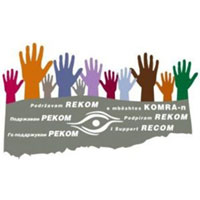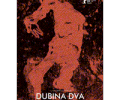Presentation of the research of human losses and detention sites during the wars in the former Yugoslavia
 On the occasion of the International Human Rights Day, the Coalition for RECOM will present its research into the human losses and detention sites during the wars in the former Yugoslavia on December 15th, 2016. The event will take place at the Belgrade Media Center at 11 a.m., and will include the participation of Nataša Kandić, the RECOM Project Coordinator, Slaven Rašković from Center for Dealing with the Past-Documenta (Croatia), Dženana Karup Druško, from the association “Transitional Justice, Accountability and Remembrance” (Bosnia and Herzegovina), and Bekim Blakaj, from the Humanitarian Law Center Kosovo.
On the occasion of the International Human Rights Day, the Coalition for RECOM will present its research into the human losses and detention sites during the wars in the former Yugoslavia on December 15th, 2016. The event will take place at the Belgrade Media Center at 11 a.m., and will include the participation of Nataša Kandić, the RECOM Project Coordinator, Slaven Rašković from Center for Dealing with the Past-Documenta (Croatia), Dženana Karup Druško, from the association “Transitional Justice, Accountability and Remembrance” (Bosnia and Herzegovina), and Bekim Blakaj, from the Humanitarian Law Center Kosovo.
The NGOs Center for Dealing with the Past-Documenta, the Humanitarian Law Center, the Humanitarian Law Center Kosovo, the Transitional Justice Accountability and Remembrance and the Center for Democracy and Transitional Justice have already established the identities and the circumstances of death of around 22,000 war victims, and have documented 600 detention sites and camps where at least 150,000 people, B&H nationals for the most part, were imprisoned during the war. The Hague Tribunal has also established the identities of around 12,000 victims of war crimes. These facts unequivocally shows that the ongoing process of facing the past requires the relevant state institutions to engage directly in order to put in place guarantees and safeguards against the repetition of war crimes in the future. With the help of civil society and its expertise, the Regional commission for Establishing the Facts about War Crimes in former Yugoslavia (RECOM) can accomplish its tasks of creating a registry of war victims and documenting all the war crimes, and thus finally put an end to the practice of remembering victims just as numbers, rather than as actual human beings with first and last names.
Throughout the wars of the nineties, it was the civilians who were treated as the main enemies and opponents. Around 70,000 civilians and 60,000 members of the various armed forces lost their lives in these wars, while approximately 10,000 war victims still lie buried in unmarked graves. RECOM can provide help in discovering still-unknown mass graves, and has the potential to contribute to the affirmation of empathy and other forms of personal and societal investment in reconciliation.
Simultaneous translation into English language will be provided









